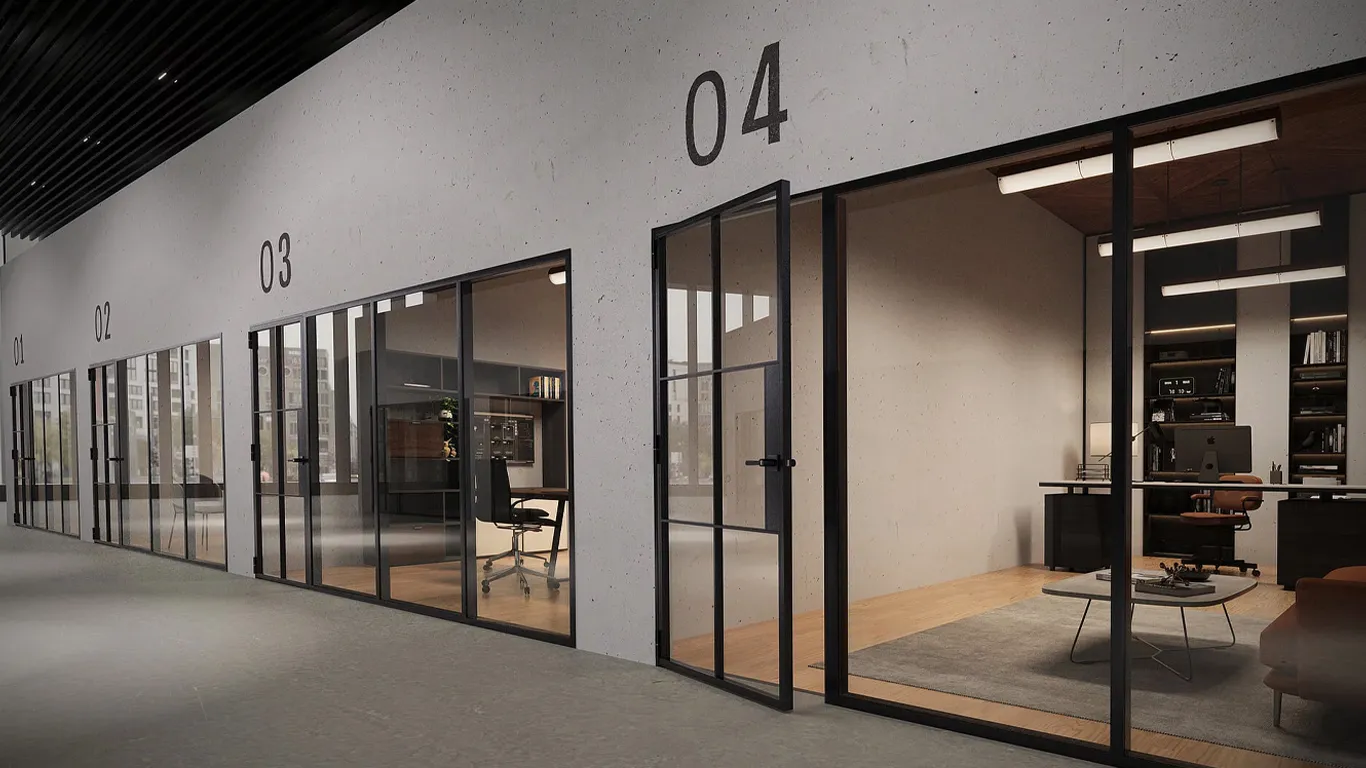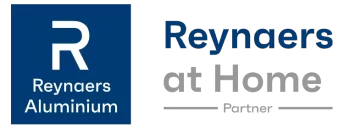Selecting the appropriate aluminum glass type for your office is a critical decision that impacts both the aesthetic and functional aspects of your workspace. Aluminum glass installations are popular in modern office designs due to their sleek appearance, durability, and energy efficiency. This article explores various aluminum glass types, their benefits, and how to choose the right one for your office.
Choosing the right aluminum glass type for your office is a multifaceted decision that requires careful consideration of functionality, safety, energy efficiency, aesthetics, privacy, and budget. Whether you opt for the durability of tempered glass, the security of laminated glass, the energy efficiency of double-glazed glass, the glare reduction of tinted glass, or the privacy of frosted glass, each type offers unique benefits that can enhance your office environment. By aligning your choice with your specific office needs, you can create a space that is not only visually appealing but also functional and efficient.
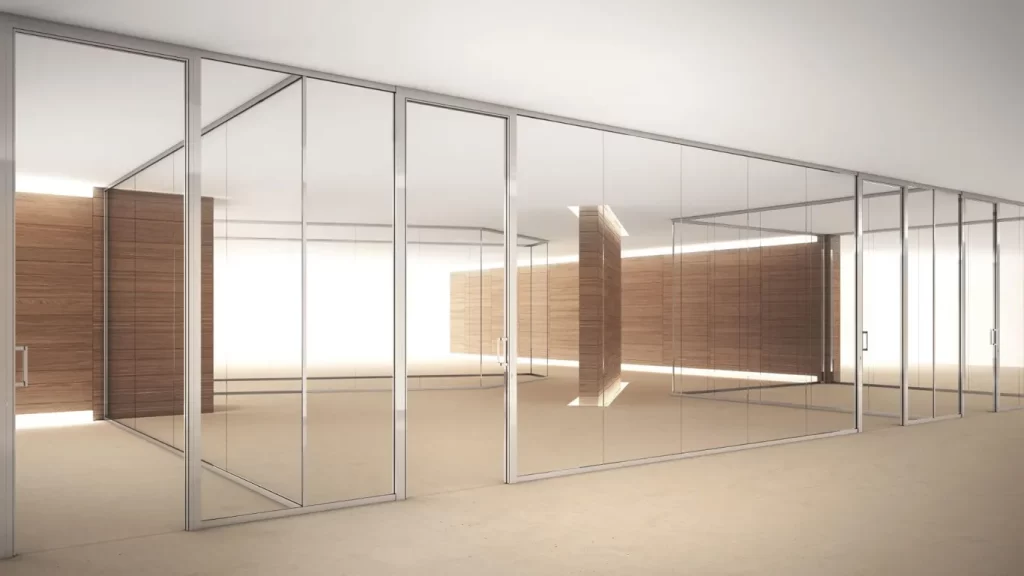
The Rise of Aluminum Glass in Modern Offices
Aluminum glass installations have become a staple in contemporary office designs. They offer a clean, sophisticated look that enhances natural light penetration, creating a bright and open working environment. The combination of aluminum frames with different types of glass provides flexibility in design and functionality, catering to various office needs.
Benefits of Aluminum Glass Installations
Before delving into the specific types of aluminum glass, it’s essential to understand why aluminum glass is a preferred choice for office spaces:
- Aesthetic Appeal: Aluminum glass offers a modern, streamlined look that can elevate the appearance of any office. Its minimalistic design complements various architectural styles.
- Durability: Aluminum is highly durable and resistant to corrosion, making it an excellent choice for long-term installations.
- Energy Efficiency: Modern aluminum glass systems often come with thermal breaks that enhance energy efficiency, reducing heating and cooling costs.
- Low Maintenance: Aluminum glass installations require minimal maintenance compared to traditional materials, making them cost-effective over time.
- Versatility: Available in various designs and finishes, aluminum glass can be customized to fit specific office requirements.
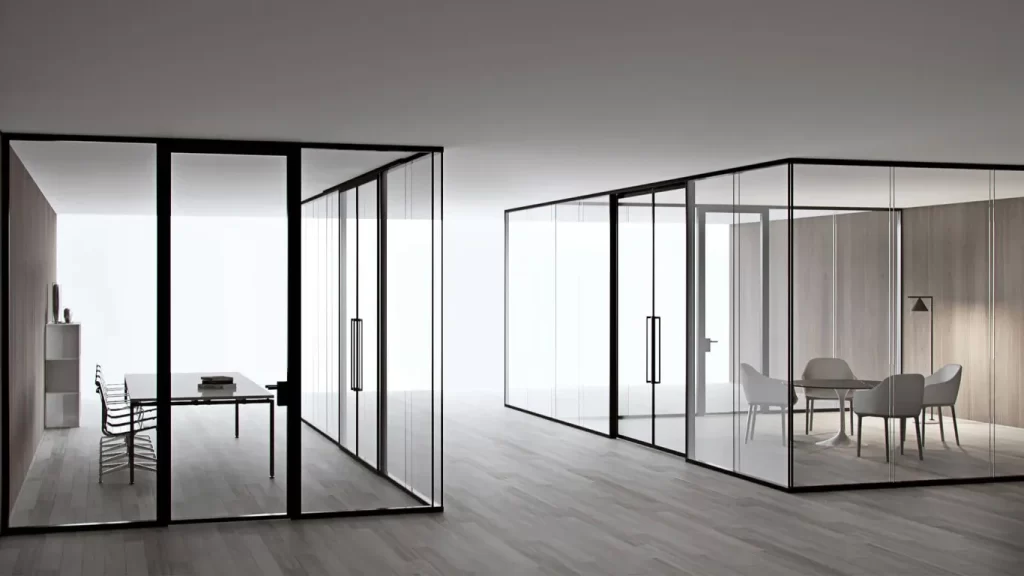
Types of Aluminum Glass for Offices
Choosing the right type of aluminum glass for your office depends on several factors, including the desired level of privacy, energy efficiency, and aesthetic appeal. Here are some popular options:
1. Tempered Glass
Tempered glass is a type of safety glass that is treated to increase its strength compared to regular glass. It is designed to shatter into small, blunt pieces rather than sharp shards, reducing the risk of injury.
Benefits:
- Safety: Ideal for high-traffic areas and offices where safety is a priority.
- Durability: Resistant to impact and temperature changes.
- Clarity: Provides clear, unobstructed views, enhancing the sense of space and light.
Applications:
- Office partitions
- Conference room walls
- Glass doors
2. Laminated Glass
Laminated glass consists of two or more layers of glass with an interlayer of polyvinyl butyral (PVB). This structure holds the glass together even when shattered, providing enhanced safety and security.
Benefits:
- Security: Offers additional protection against break-ins and vandalism.
- Sound Insulation: The PVB interlayer provides excellent sound insulation, reducing noise pollution in busy office environments.
- UV Protection: Blocks up to 99% of UV rays, protecting office interiors and reducing glare.
Applications:
- External windows
- Facades
- Soundproof office partitions
3. Double-Glazed Glass
Double-glazed glass, also known as insulated glass units (IGUs), consists of two glass panes separated by a spacer filled with air or gas. This configuration enhances thermal and acoustic insulation.
Benefits:
- Energy Efficiency: Reduces heat loss and gain, contributing to lower energy bills.
- Sound Insulation: Provides superior noise reduction, creating a quieter working environment.
- Condensation Reduction: Minimizes condensation build-up, maintaining clear views.
Applications:
- Exterior windows
- Curtain walls
- Skylights
4. Tinted Glass
Tinted glass is treated with a coating or film that reduces glare and heat transmission. It is available in various shades and colors to match office aesthetics.
Benefits:
- Glare Reduction: Enhances comfort by reducing glare from sunlight.
- Heat Control: Limits solar heat gain, improving energy efficiency.
- Privacy: Provides a level of privacy without obstructing views.
Applications:
- Office windows
- Glass partitions
- Facades
5. Frosted Glass
Frosted glass is created by sandblasting or acid-etching the glass surface to produce a translucent appearance. It offers privacy while allowing light to pass through.
Benefits:
- Privacy: Ideal for areas where privacy is essential, such as meeting rooms and executive offices.
- Light Diffusion: Softens natural light, reducing glare and creating a comfortable working environment.
- Aesthetic Versatility: Available in various patterns and designs to complement office decor.
Applications:
- Office partitions
- Doors
- Windows
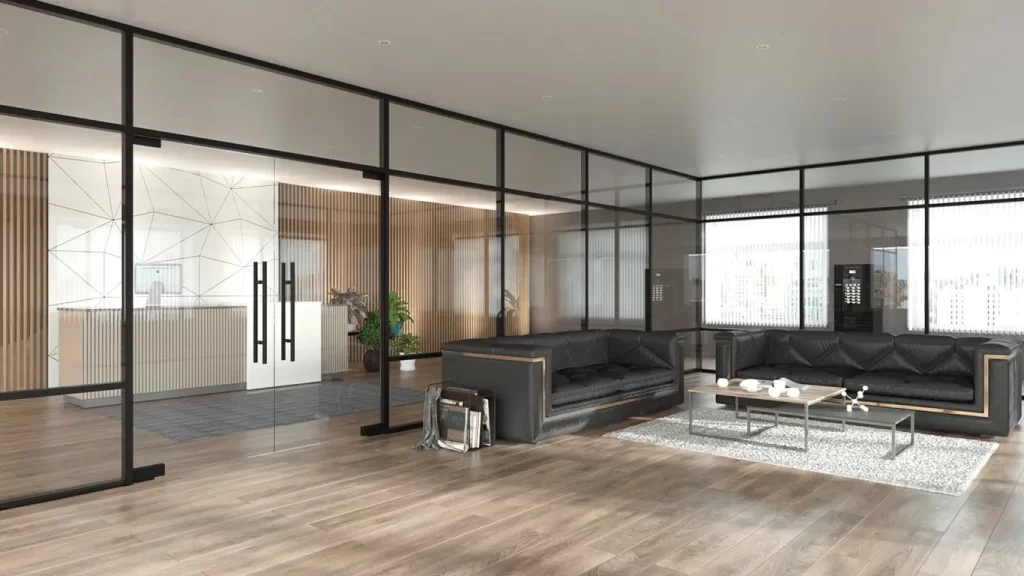
Factors to Consider When Choosing Aluminum Glass
Selecting the right aluminum glass type for your office involves considering several factors:
1. Purpose and Functionality
Identify the primary purpose of the glass installation. Is it for partitioning, exterior windows, or decorative purposes? Each type of glass offers specific benefits that align with different functionalities.
2. Safety and Security
Consider the safety requirements of your office. For high-traffic areas, tempered or laminated glass may be more suitable due to their enhanced safety features.
3. Energy Efficiency
Energy efficiency is crucial for reducing operational costs. Double-glazed and tinted glass options can significantly improve thermal performance, contributing to a sustainable office environment.
4. Aesthetics
The visual appeal of the glass installation should complement the overall office design. Choose glass types that enhance the aesthetic value while fulfilling functional requirements.
5. Privacy and Acoustic Control
For areas requiring privacy and sound insulation, such as conference rooms and executive offices, laminated and frosted glass are excellent choices. They provide the necessary privacy while maintaining an open feel.
6. Budget
Evaluate the cost implications of different glass types. While some options may have higher upfront costs, they can offer long-term savings through reduced energy bills and maintenance costs.

